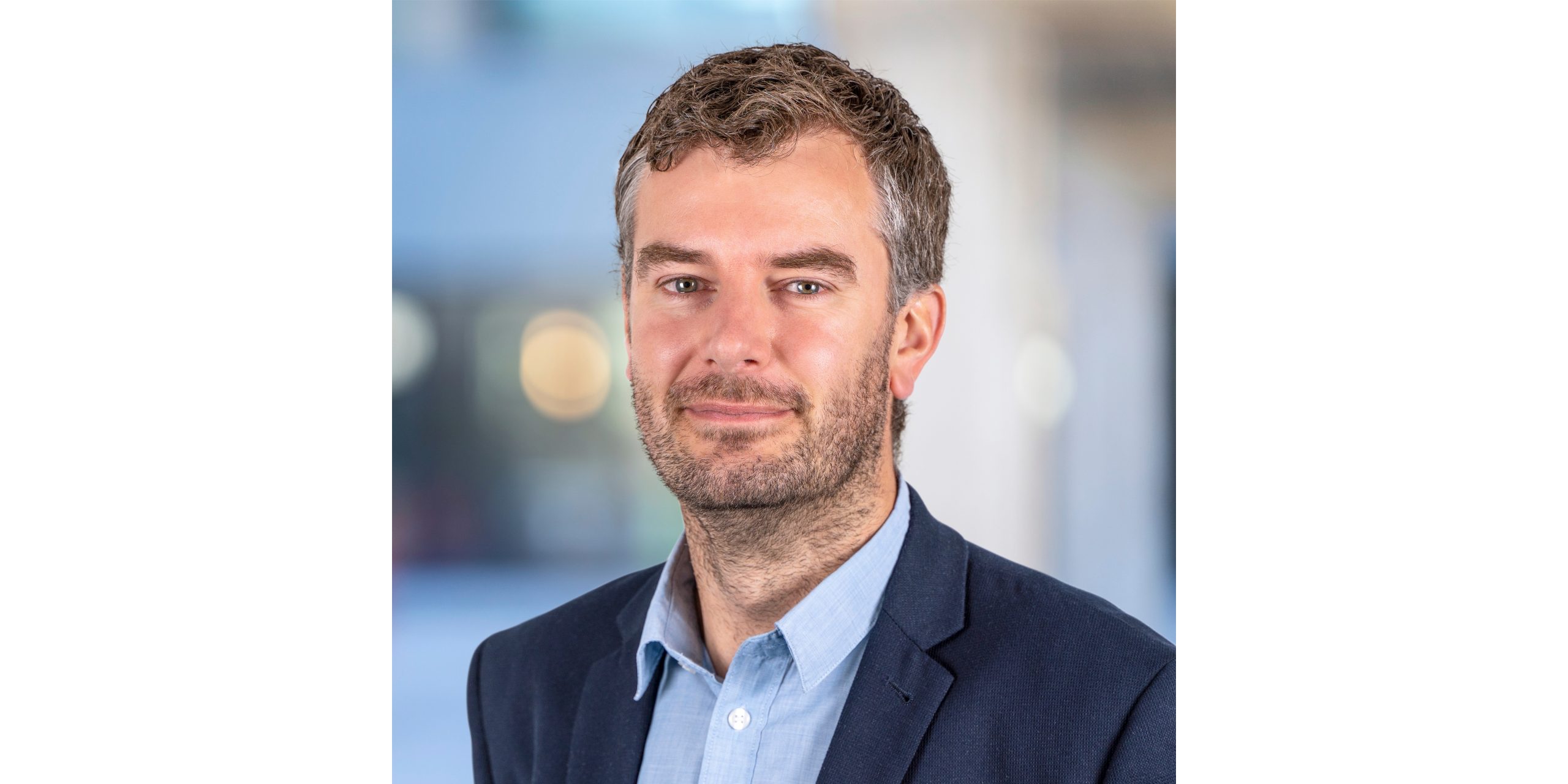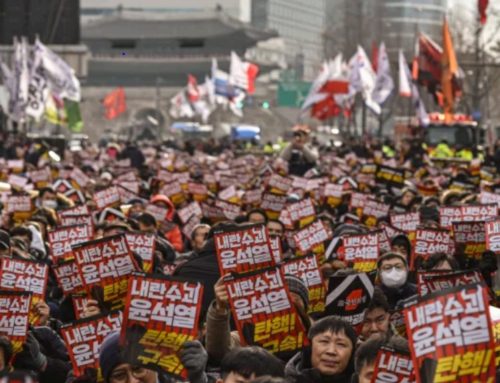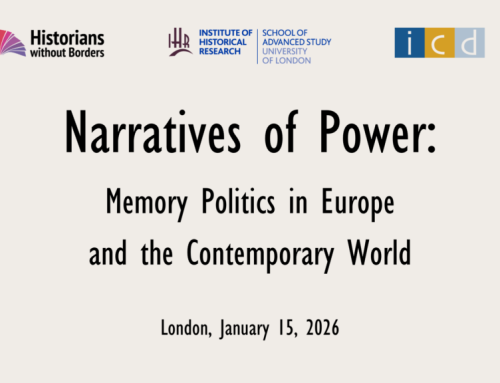EuroClio is pleased to announce the appointment of Dr. Robbert-Jan Adriaansen on 1 September 2024 as the new endowed EuroClio Chair of Historical Culture in Transition at the History Department of the Faculty of Arts and Philosophy of Ghent University.
Established by EuroClio, the Chair by special appointment supports theoretical reflection and empirical research into historical culture – the collection of diverse and sometimes conflicting ways of engaging with the past in education, society, and academia.
EuroClio: We wanted to talk to you about your new position as EuroClio Chair of Historical Culture in Transition. Could you tell us a bit about the role, what you expect from it, and what is unique about it?
Robbert-Jan Adriaansen: This is a unique position and a great opportunity for collaboration on multiple fronts. From the perspective of EuroClio, it is a good way to establish cooperation with academia. The History Teachers Association of Flanders has recently become a member of EuroClio, that was one of the leads to establish the position which combines cooperation in three ways. First between Flanders and EuroClio, then between Flanders and Erasmus University Rotterdam (specifically the Center for Historical Culture), and finally between Rotterdam and Ghent.
The focus on historical culture is very important. Historical culture takes a broader view of education than traditional history didactics. Nowadays, history education research often focuses on historical thinking skills. It is quite striking that these skills have been modelled after what professional academic historians do. In that sense, historical culture allows us to think about education more broadly and consider how the past is used and abused in society. This approach can help students become more resilient against populist historical narratives or social media propaganda.
For this chair, I hope to explore different skills that are not usually covered in traditional history education research and collaborate with EuroClio on these topics. The goal is to reach students who do not plan to study history professionally but still need to understand how historical narratives influence contemporary debates.
EuroClio: As part of your role, are you planning to organise events for university students and the wider public? How do you aim to bridge the gap between academia and those who are typically less involved in these big questions about history?
Robbert-Jan: Yes, first we will increase cooperation with EuroClio. For example, we have already created a thesis prize on history education that we plan to launch this fall. This prize will reward research that is practically oriented, promoting studies that educators can actually use. We will also apply for research grants, many of which now explicitly call for a greater impact. Through research and cooperative activities, we hope to bridge the gap between academic research and the field of education.
EuroClio: How did you get into this area of work? Did you start as a history student?
Robbert-Jan: It started during my master’s studies in Rotterdam. My professor, Maria Grever, invited a popular historian who used the opportunity to emphasise that we, as prospective historians, are responsible for the upkeep of the memory of the Second World War for future generations. That made me more interested in the question of keeping the memory of the Second World War [alive] rather than what happened in the Second World War. It also sparked my interest in historical consciousness and historical culture. I have worked on these concepts, especially in relation to social media and how digitisation affects our understanding of the past.
EuroClio: Looking at your publications, we initially struggled to see the link between topics like German history, social media, and South Africa. But now, hearing your explanation, it all makes sense.
Robbert-Jan: Yes, it is about how young people make sense of the past. This is what I studied in my dissertation on the German youth movement. Social media platforms are contemporary platforms where young people engage with history and heritage, so it is important to study these spaces. In-class communication is just a small part of how young people engage with history, so broadening our scope to include social media is crucial.
EuroClio: We noticed that your work on TikTok and Instagram is quite different from what we usually see from historians. Using platforms like TikTok or Instagram seems like a great way to work with students.
Robbert-Jan: I recently wrote an article for Teaching History[RA1] : Journal of the History Teacher’s Association of NSW Inc (HTANSW), arguing that banning mobile phones in schools creates a disconnect between classroom learning and students’ daily communication. If students can not apply what they learn in their everyday lives, it limits the impact of education. We need to integrate these technologies into our teaching rather than ignore them.
EuroClio: We understand why some teachers might be reluctant to integrate social media into their lessons, but ignoring it could alienate the audiences.
Robbert-Jan: That is why I published this in a journal for teachers, I think we also have to educate ourselves as teachers. If we don’t, the gap between classroom learning and students’ lives will only widen. This applies to secondary education and universities, especially with the increasing use of tools like ChatGPT. Instead of banning these tools, we should think about how they can be integrated into research and teaching. In the light of new technologies, we have to re-evaluate what actually the things are that we want to teach and want to assess.
In the Netherlands, we generally have two modes of assessment at university, a written exam, mainly used for testing knowledge, and papers. We assume that any other skill crucial for being a historian, is possessed by students once they are capable of writing a paper. But is a paper really an effective way of assessing all these independent and different skills? If we diversify the options of assessment and also integrate the effective use of ChatGPT for research purposes – then I think we have a way more interesting and diverse teaching and assessing than we do now.
EuroClio/Zarah: I completely agree, during my bachelor studies I found out how narrow the criteria for assessment and the skills learned can be. ChatGPT is really forcing universities to prove that they are teaching students critical analysis skills and originality of thought, which I don’t think most universities do.
Robbert-Jan: Yes, universities were tasked with these goals 200 years ago, but we are not always achieving them.
EuroClio: Do you ever face backlash from academic institutions that might see engaging with social media as not academically pure?
Robbert-Jan: It really depends on the audience and on the journal. My experience so far is that there is quite some gatekeeping on behalf of anonymous peer reviewers, but it mostly has to do with the methodologies that I use. We need to find a mode of thinking that is interdisciplinary about these concepts, as well as opening up to ideas from other disciplines in that regard.
EuroClio: Thank you very much for your time.
This interview was conducted by Zarah Drummond (EuroClio trainee) and Giorgia Busato (Junior support staff)













